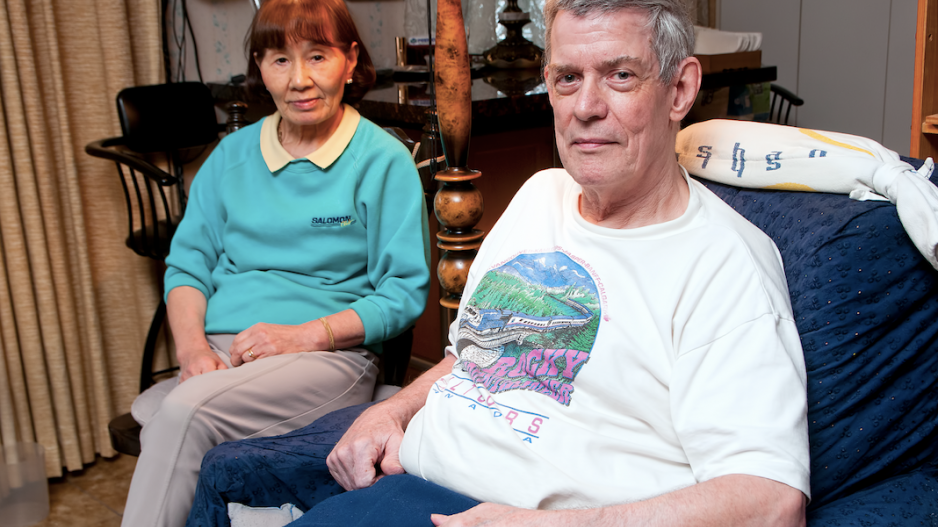The first attempt to wind up a strata corporation under a new provincial law that makes selling condominium complexes easier remains mired in court delays.
On March 20, owner Anil Raja Patade asked the court for an adjournment so his lawyer could be present. He is opposing the sale of his building at 2777 Oak Street based on the way the proceeds are being distributed.
He spoke with Business in Vancouver but did not want to go on the record because his lawyer is out of the country.
The court agreed to the adjournment and the case is set to be heard on March 27.
Owners on November 8 voted 28-2 in favour of selling the Twelve Oaks development at 2777 Oak Street, on the corner of West 12th Avenue, to a numbered company for $21.5 million. That is more than twice the 2016 assessed value for the entire building.
Because more than 80% of owners voted in favour of selling the complex but the vote was not unanimous, the sale still requires court approval, according to changes to the Strata Property Act that were part of B.C.'s Bill 40 and went into effect in July 2016.
The owners filed a petition to the court on December 14 and then appeared in court on February 3 and February 20. Each time the case was adjourned as four owners appealed their property assessments in the hope of getting a bigger slice of the proceeds.
Three of the four failed in their attempt while the other owner saw his assessed value rise to about $630,000 from about $589,000, strata corporation vice-president Roy Mitchell told BIV on March 20. That rise in property value means that all of the other owners will get a slightly smaller share of the proceeds.
The way proceeds are being divided in this case is by assessed value because the building was built before 1974.
Buildings that were built between August 1974 and July 2000 have a schedule in their strata plans called “interest upon destruction.” That schedule sets out the relative value of each strata unit based on a developer’s estimate of that unit’s value back when the building was built.
“Some estimates in the early days were incredibly rough,” Clark Wilson partner Darren Donnelly told BIV in December.
“There are examples [of condo developments across Metro Vancouver] where developers went through and gave a value of one to one-bedroom units, two to two-bedroom units and three for three-bedroom units.”
Because Patade would not discuss his legal strategy it is unclear how he wants proceeds divided but lawyers at firms in Vancouver have told BIV that they believe that the way B.C.’s Strata Property Act is written, the proper method of distributing proceeds for buildings that were built before August 1974 should be by square footage and not assessed value. All buildings built after July 2000 will have proceeds divided based on assessed values.
Mitchell said all owners in his complex now want to sell the 44-year-old building and the quibbling is only over how the proceeds are divided.
Robert Taylor, who originally voted against selling Twelve Oaks, told BIV on March 20 that he is now resigned to accept that a court will approve that the building will sell.
“We don’t really have a lot of choice,” he said. “What the rest of the owners will do if we don’t go through with the $21.5 million sale, my understanding is that all they’re going to do is go to the next highest bidder and the sale price will probably go down to $19 million or $18 million. We might as well just move.”
Taylor has cerebral palsy and does not want the stress or physical exertion of moving. He also renovated his home in 2015 and doubts that he will be able to find a new home nearby that is similar in quality to his 863-square-foot unit.
Because Taylor is on the street side of the complex and not the quieter side away from the street he believes his assessed value is unfairly low.
“For a property at the back that is 704 square feet, [the owner’s] assessment went from $361,900 to $483,000,” Taylor said.
“Ours has two bedrooms, two bathrooms and is fully renovated. [An owner at the back will] get about $735,000 and we get $706,000 before expenses.”
Business in Vancouver is in the middle of providing a two-part series on the impact of Bill 40. The first part appeared on March 14 and focuses on what problems the B.C. government attempted to solve and what the result has been. Part 2 of the series appears March 21 and will focus on some unintended consequences of the legal change.




